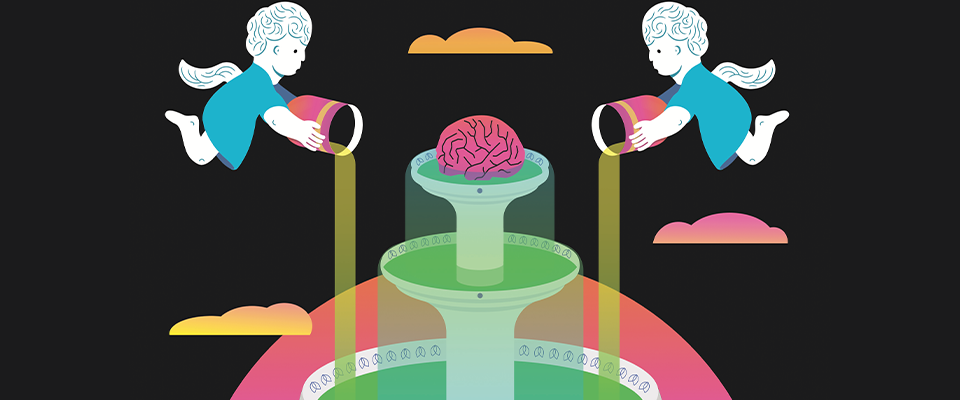Learning a skill could improve our brains.
The way to get to Carnegie Hall is practice, practice, practice, so the saying goes. It’s an idea that resonates deeply with Allyson Mackey, a Berkeley doctoral student in neuroscience, but the skills she’s interested in practicing are the building blocks of IQ, such as working memory, processing speed, and reasoning. For the past four years, she’s been researching how the brain changes when you learn a new skill. Her findings help debunk the myth that intelligence is an innate, immutable quality.
In her latest study, Mackey found that the brains of young adults changed in response to intense studying. The students participated in a Law School Admissions Test prep course that focused on reasoning skills. By taking fMRI scans of the students’ brains, she discovered that the participants who improved their LSAT scores also developed new neural networks. Training allows you to use more of your brain, she says, and can also improve existing neural connections. Furthermore, Mackey points out that standardized tests like the LSAT, SAT, and IQ tests only test how smart you are at any given time, not how smart you’ll ever be.
Mackey says her research has profound implications for education policies. In a previous study, she demonstrated that children from low-income families at an underperforming elementary school reaped significant intellectual gains by practicing reasoning skills. After attending an eight-week training program Mackey designed, the students on average raised their IQs by 10 points, some gaining as many as 14 points. Mackey says, “No one had really taken a step back and asked, ‘Before we get to reading and math, let’s see if we can train these basic cognitive skills in a more specialized way.'” Mackey’s advisor, Silvia Bunge, is planning a series of experiments to see how such training could fit into school curricula.
Mackey is now out to tackle the question of how to keep the smarts you’ve gained. After all, she warns, brain plasticity is a two-way street, especially as we age: “If we can get smarter, it also means we have to worry about getting dumber.”



















